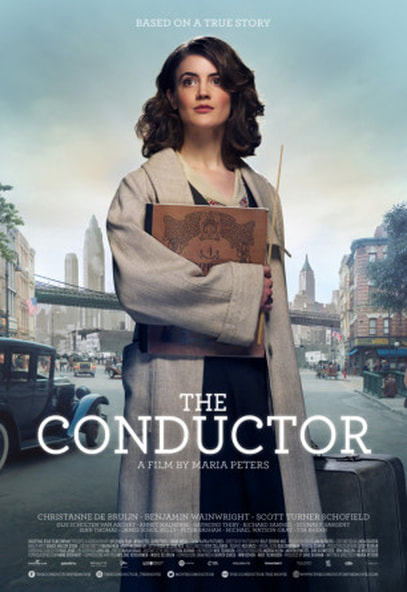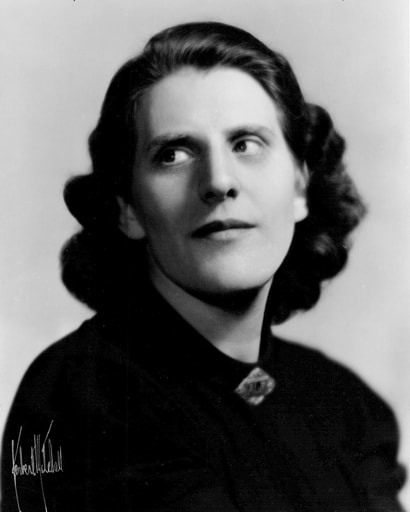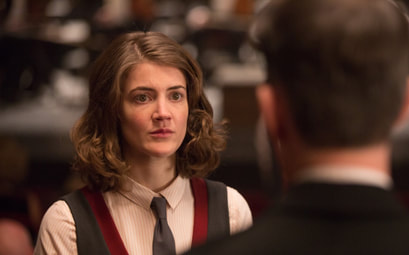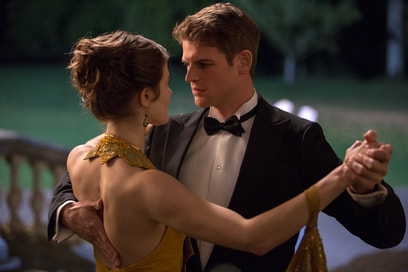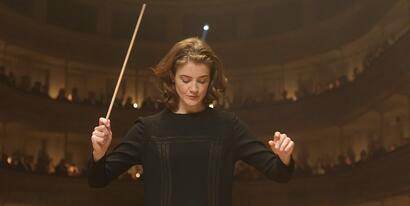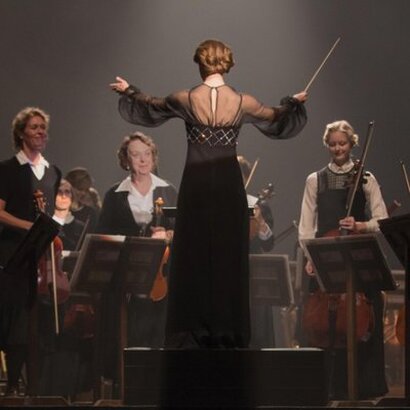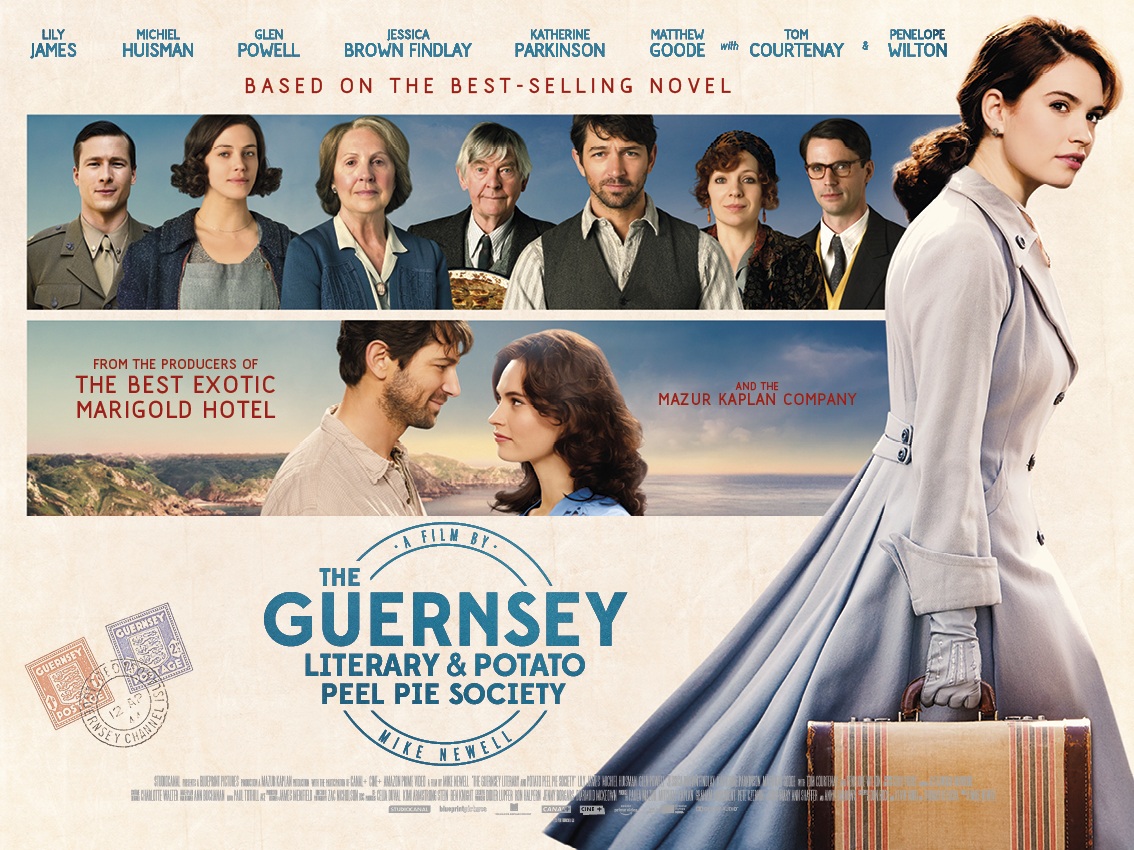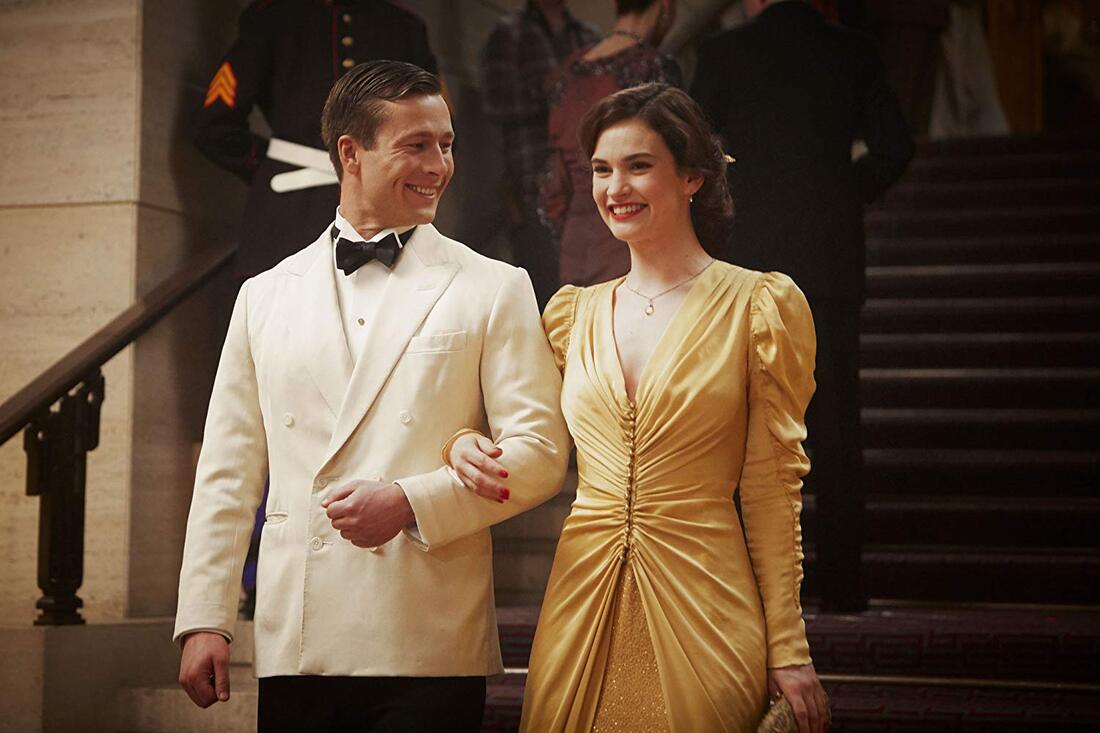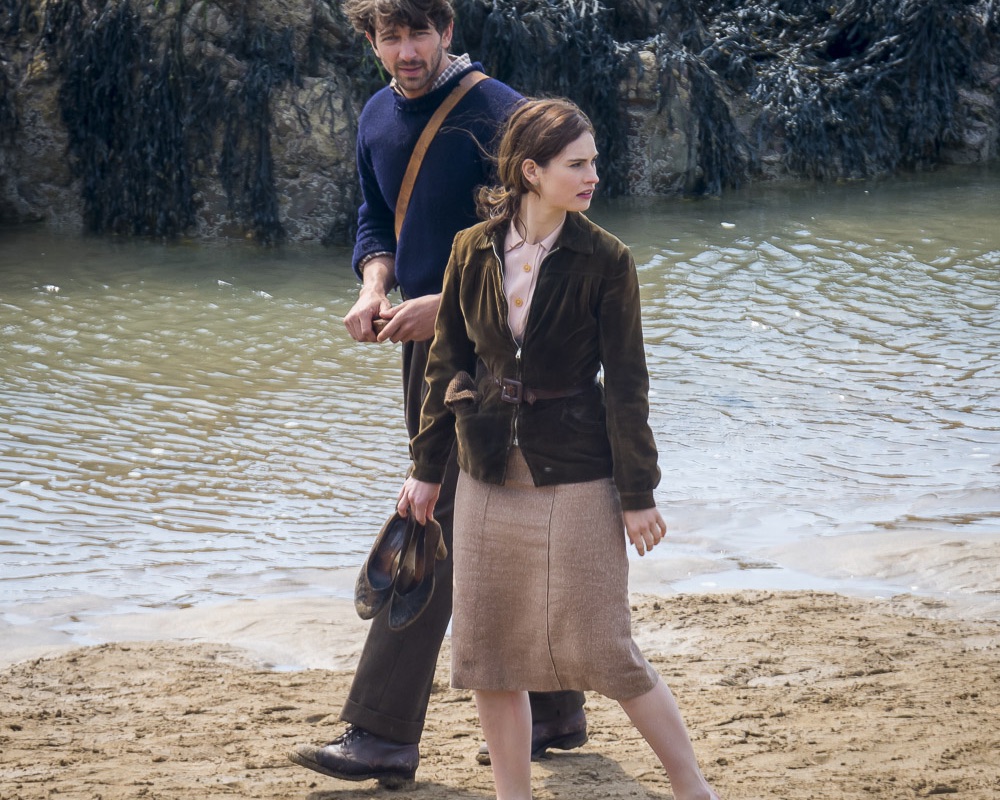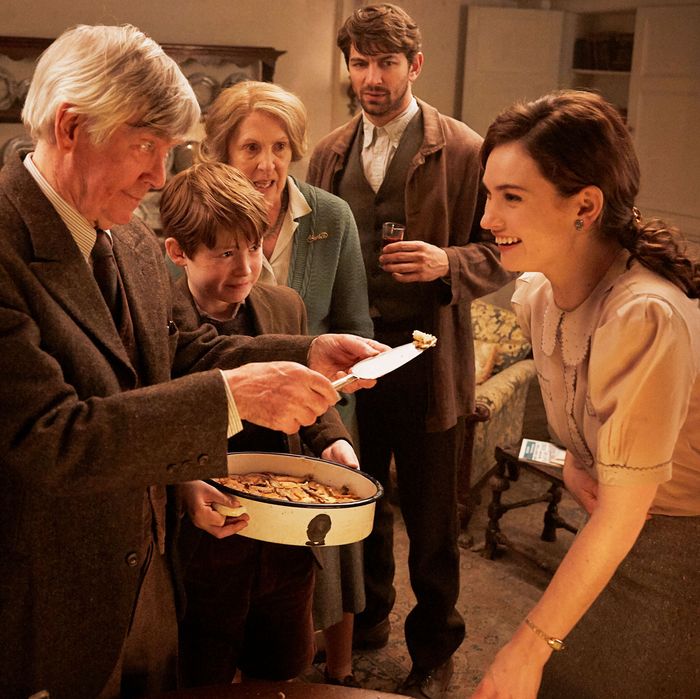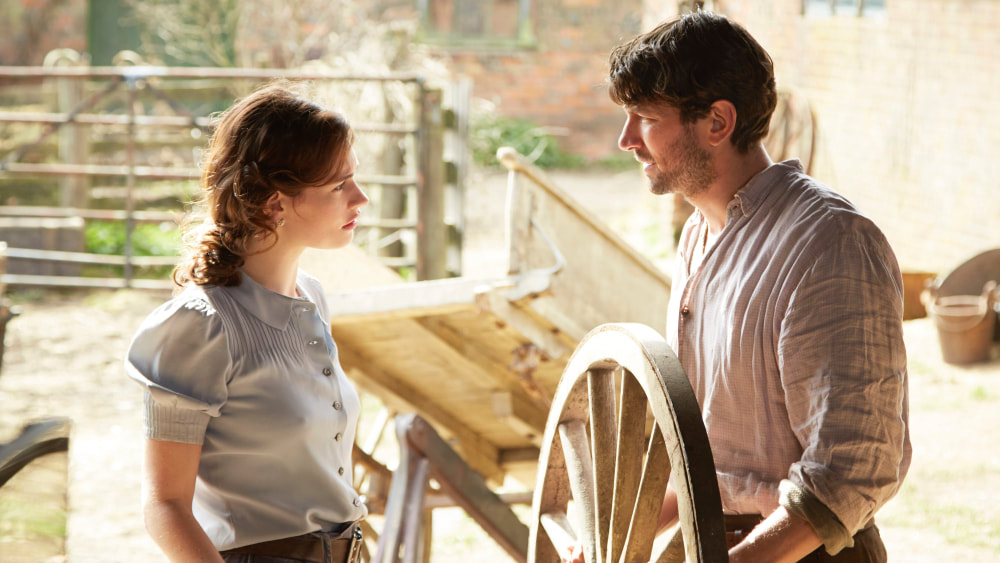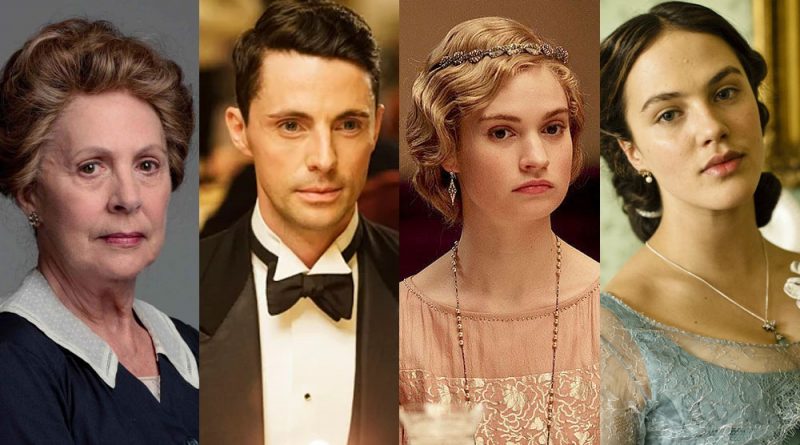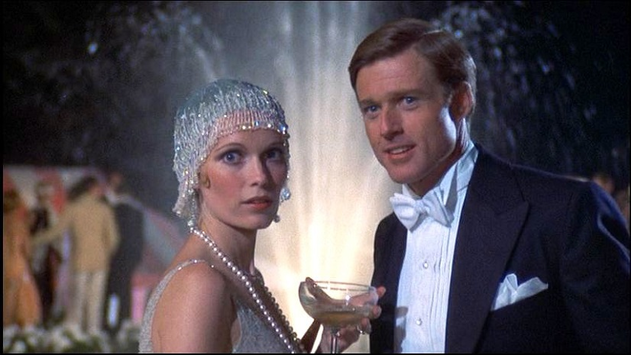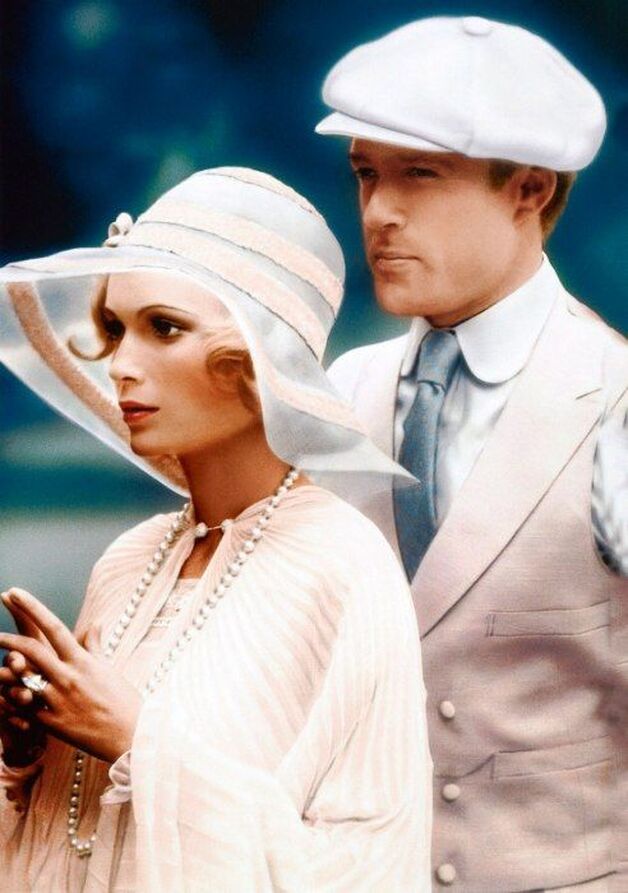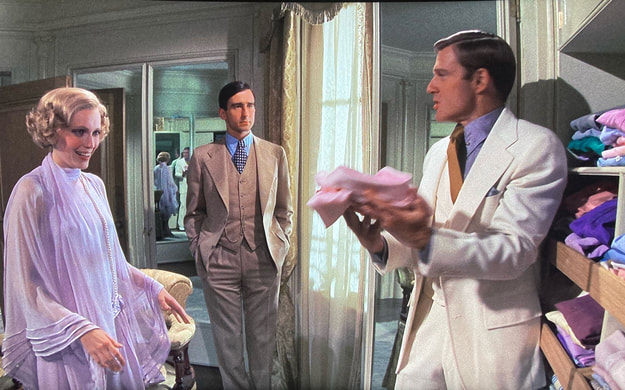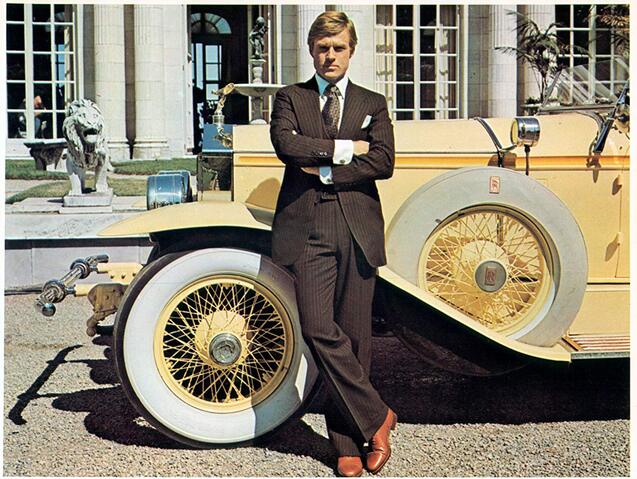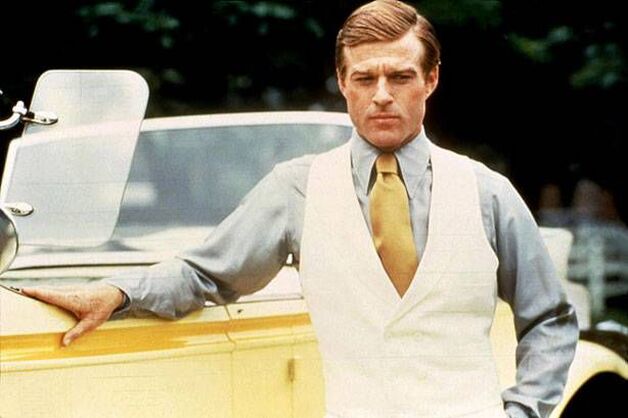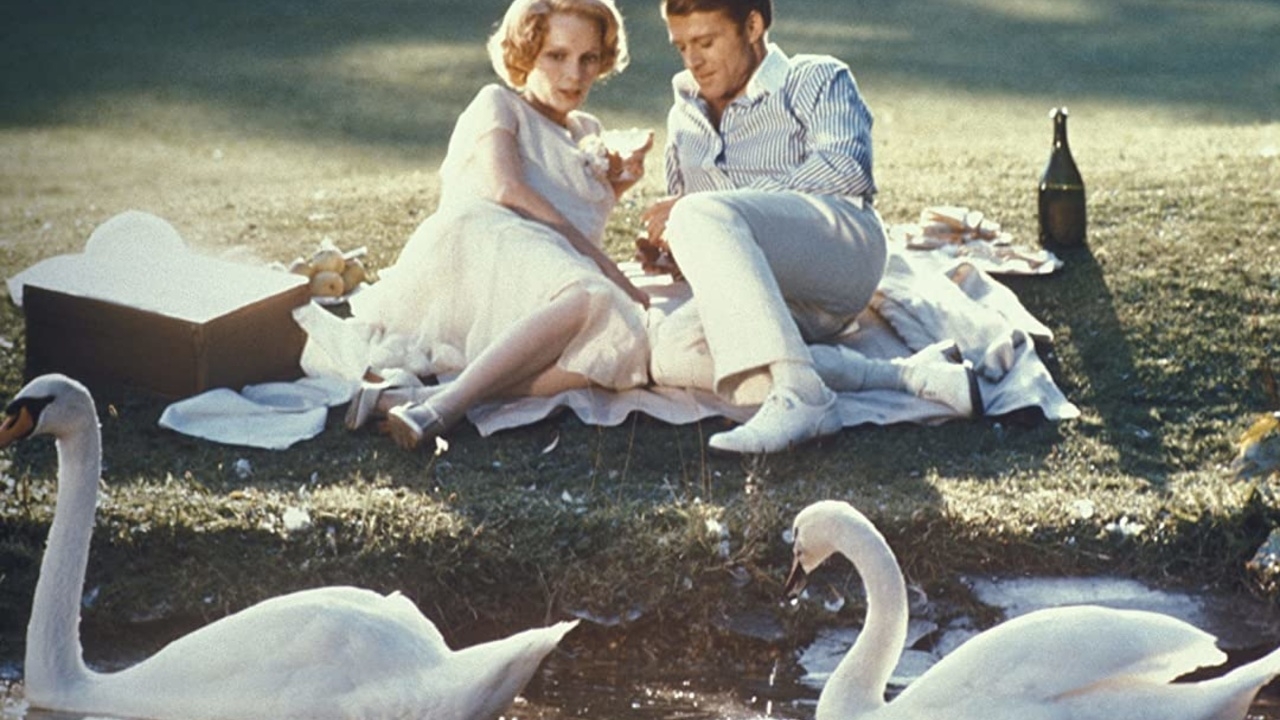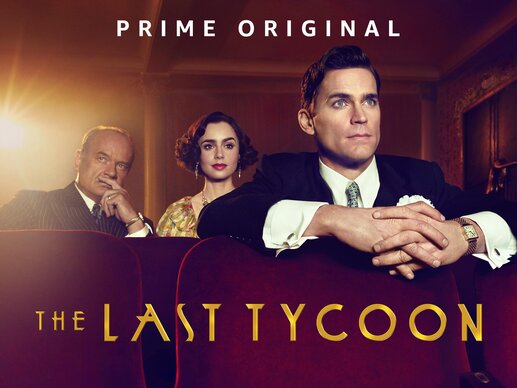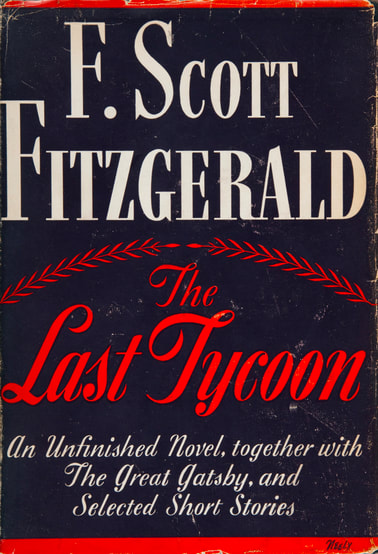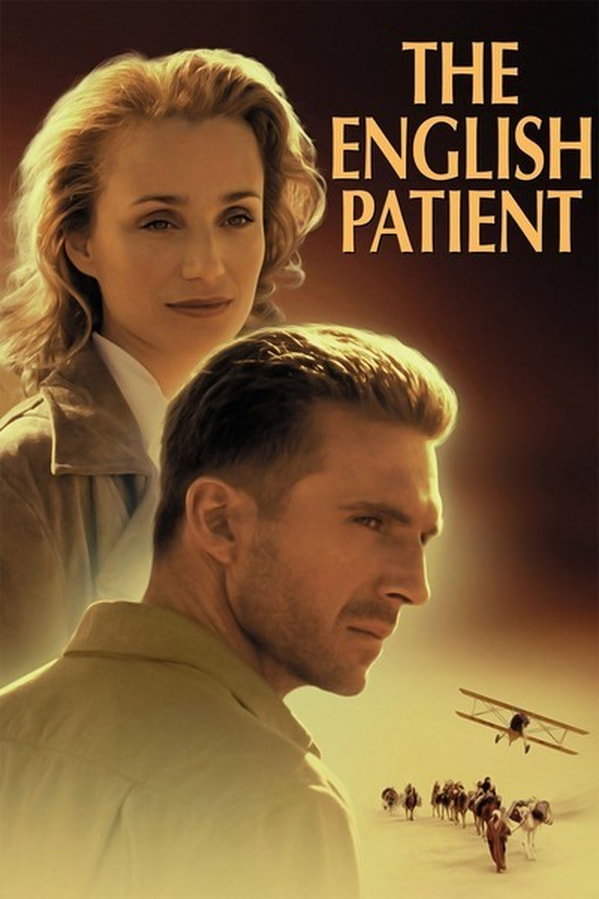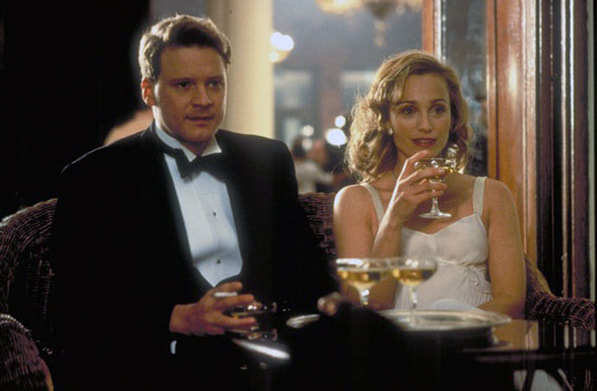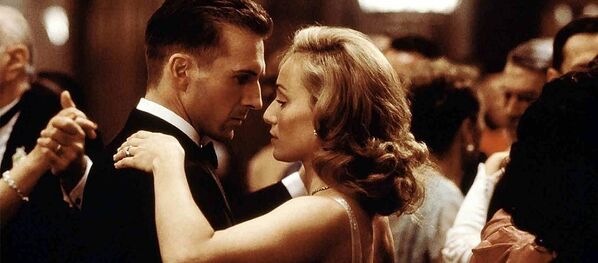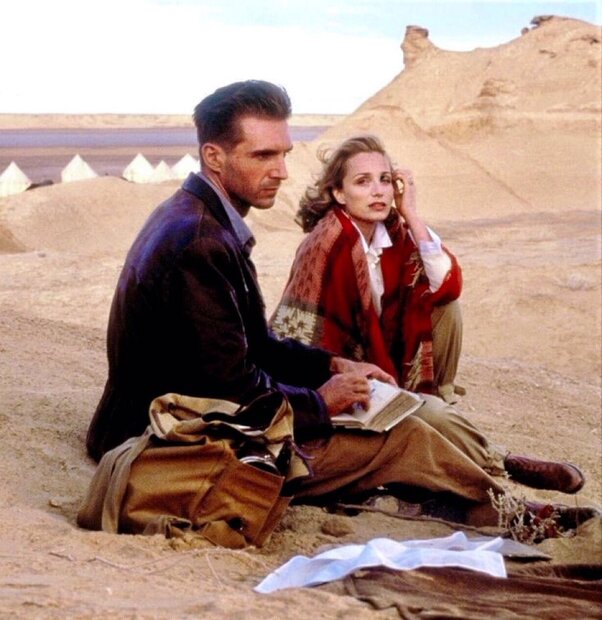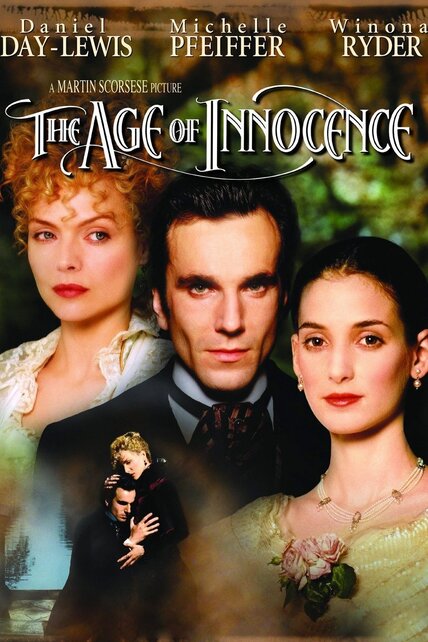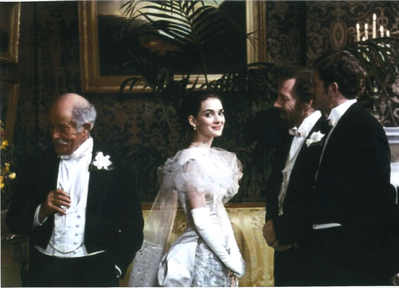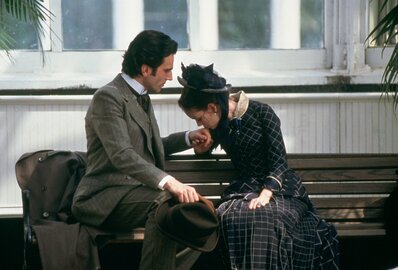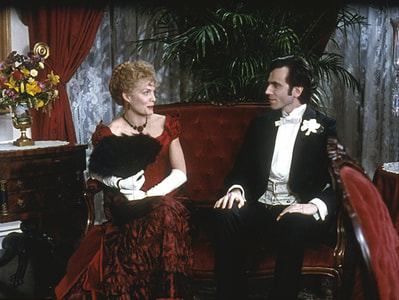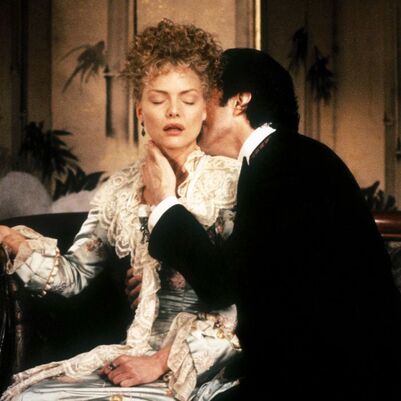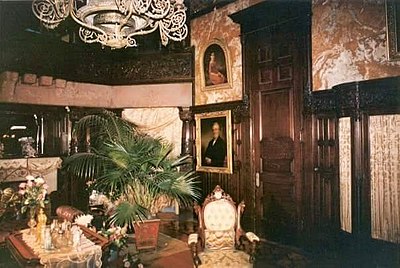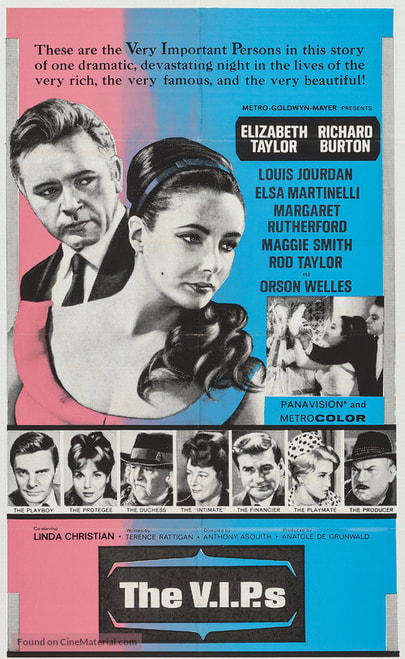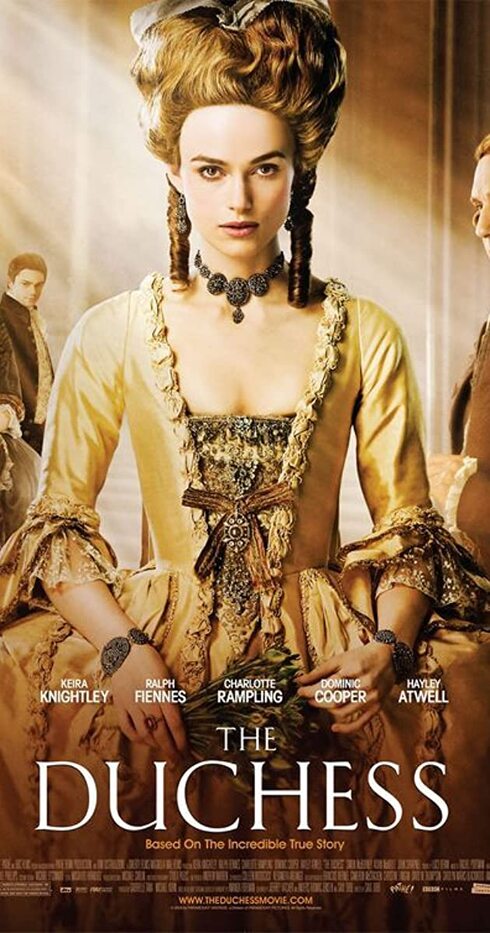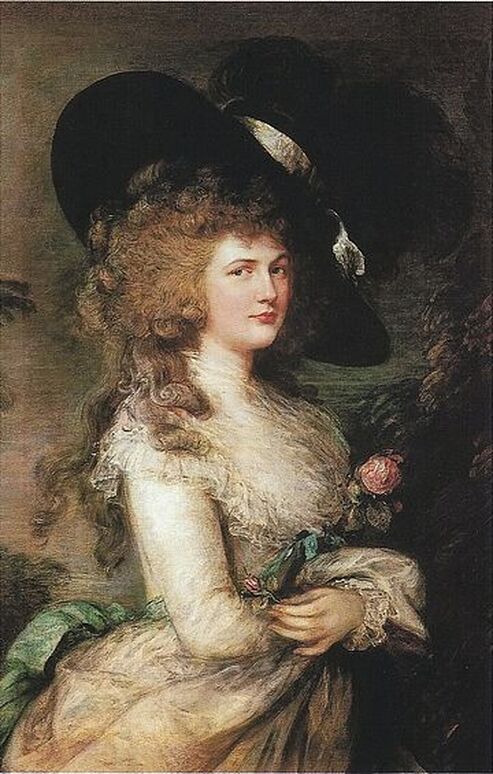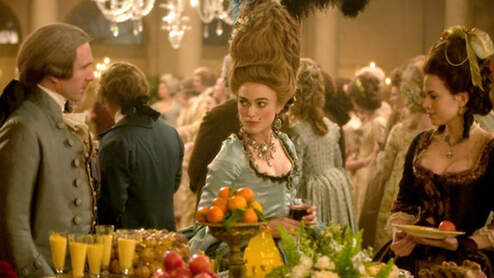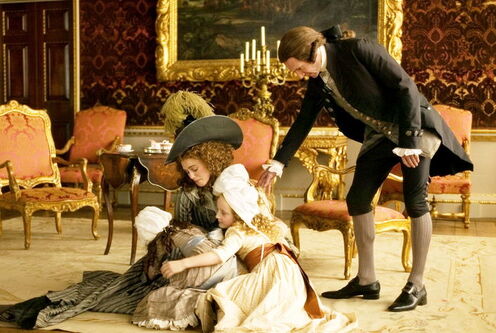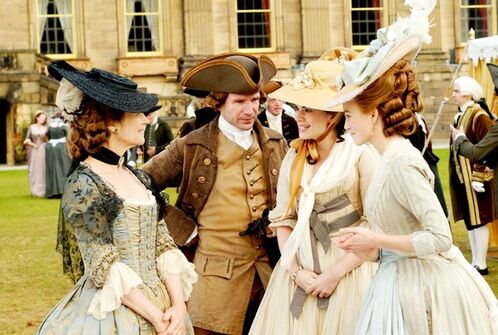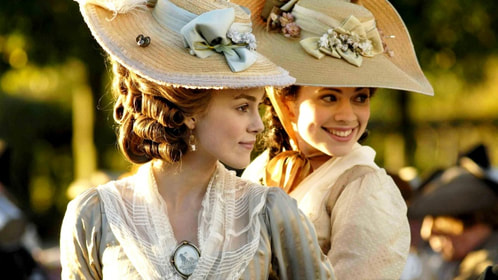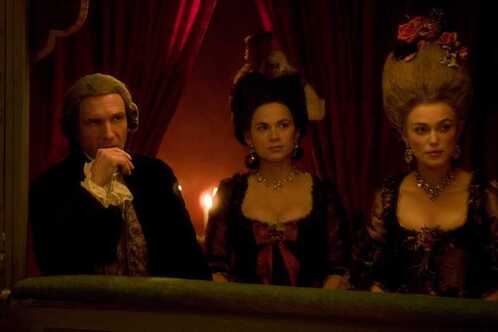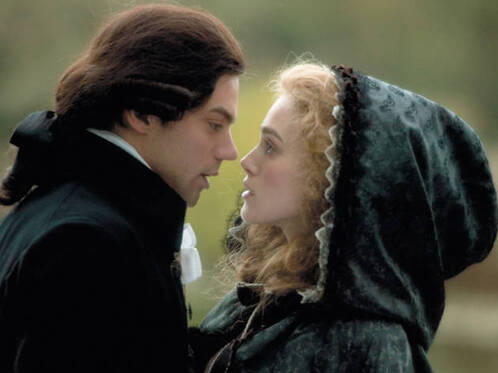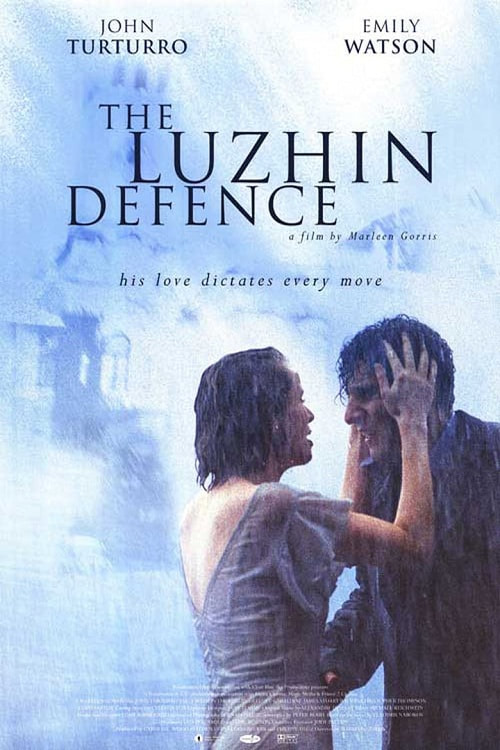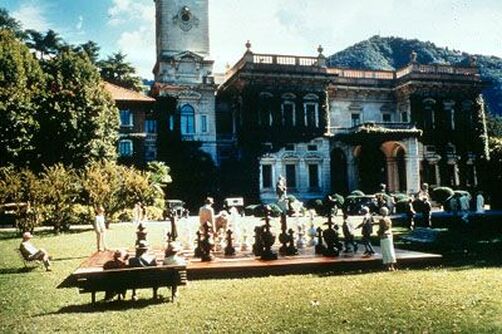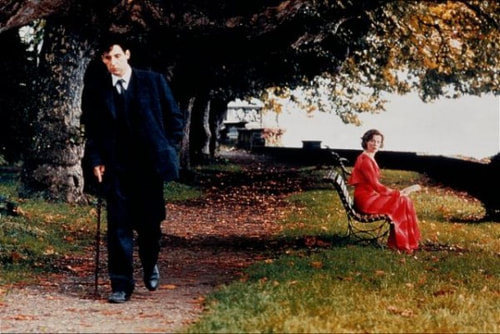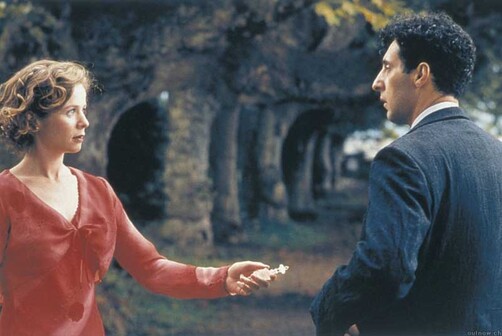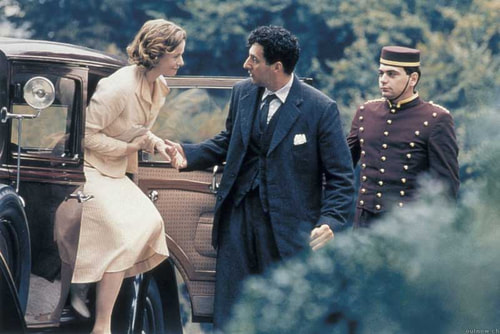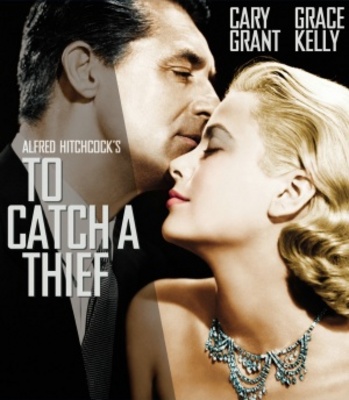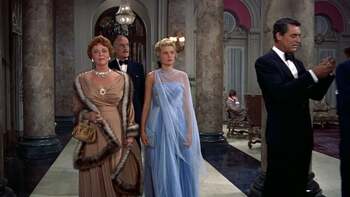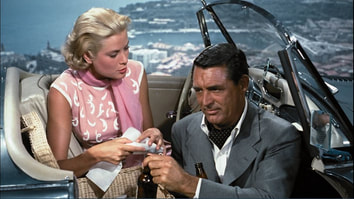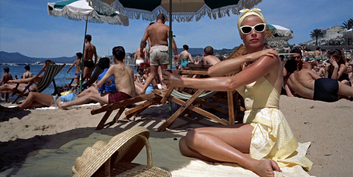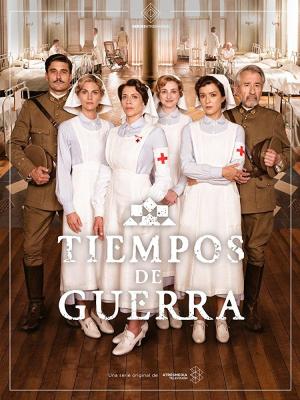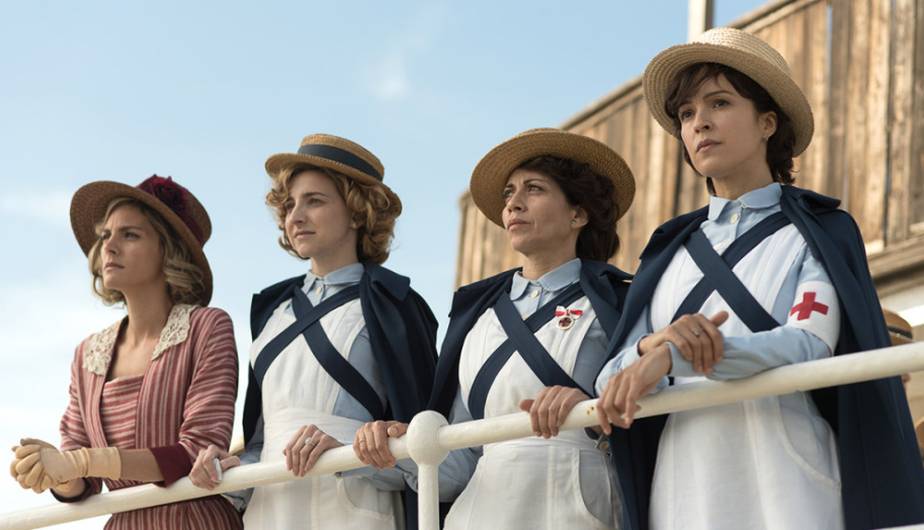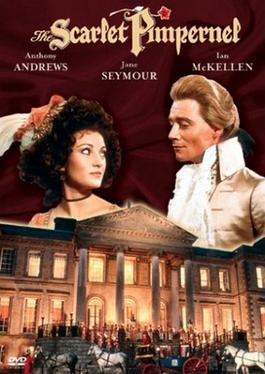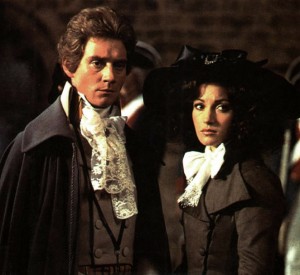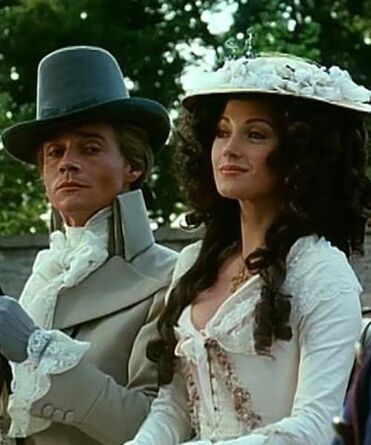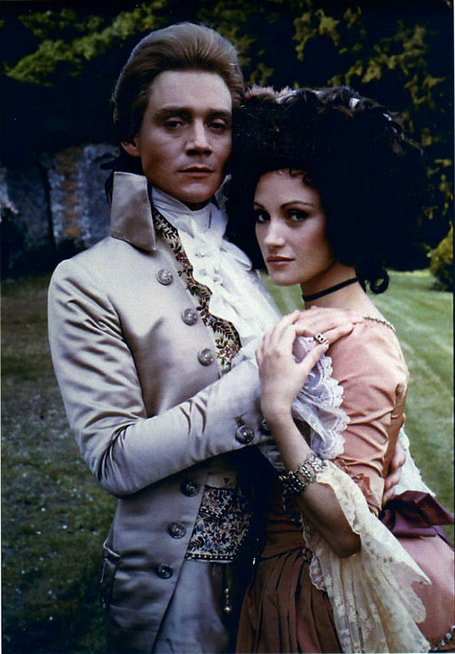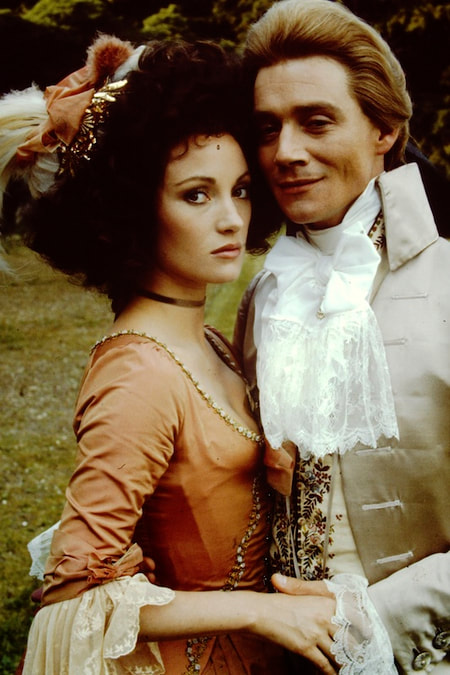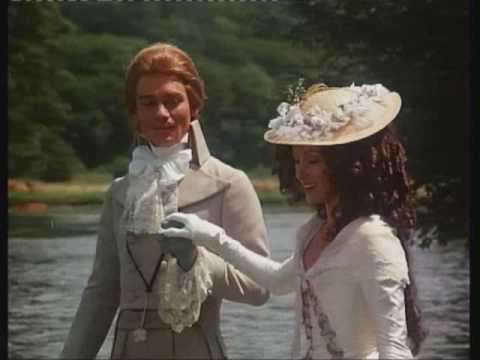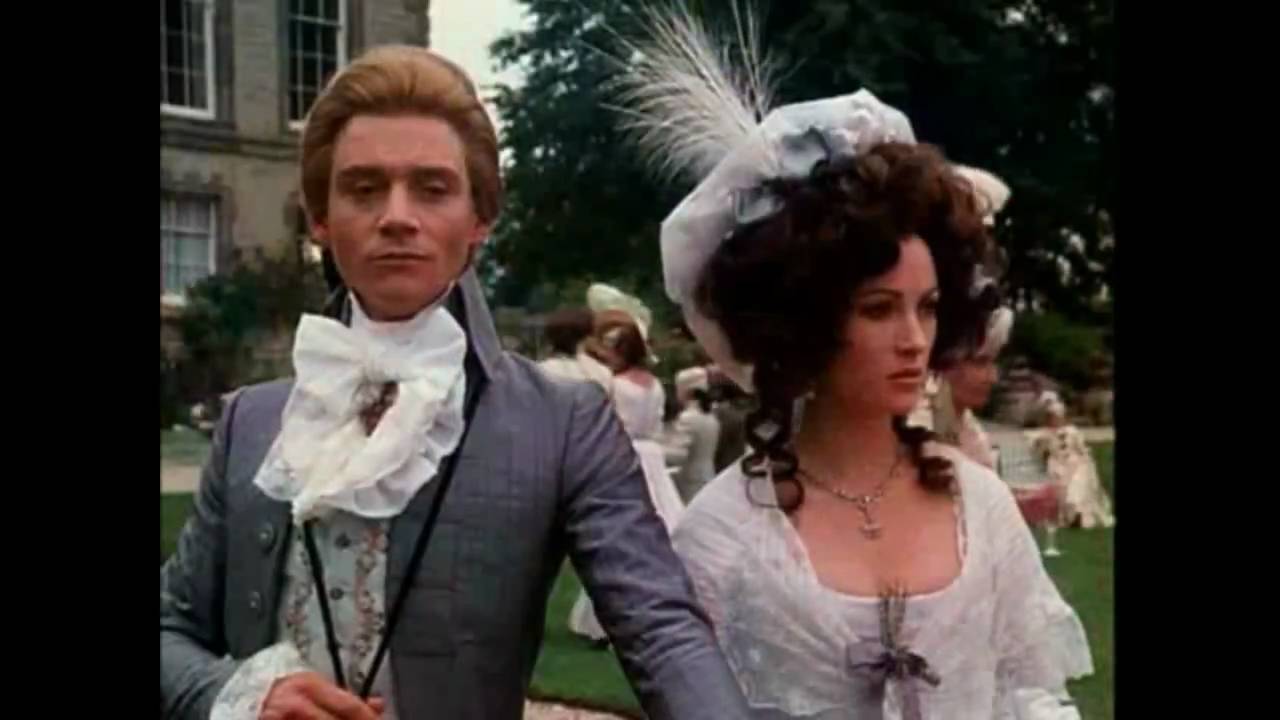|
Written and directed by Maria Peters, the film ‘The Conductor’ is based on the true story of the Dutch born Antonia Brico. In the late 1920’s she was the world’s first woman who successfully conducted a large symphony orchestra. Until recent, women barely succeeded to reach the world’s top ranking conductors. Until 2017, none of the world's 50 best conductors in the world is a woman. In 2018, for the first time in Dutch history, the Netherlands Radio Philharmonic Orchestra appointed a woman as its Chief Conductor: Karina Canellakis. The storyUnited States 1926: The Dutch, 24-year-old Antonia Brico was a child when she and her parents immigrated to the United States. She dreams of becoming a conductor, but nobody takes her ambition seriously. After hard working and sheer persistence, she managed to enter into the conservatory, but soon afterwards she was forced to leave it after her piano teacher accused her of physical attack after his failed attempts of assault. With the help of her friend Robin, a musician, Antonia was able to survive and love also knocks on her door. But the dream of becoming a conductor never leaves her. she returns to her motherland, where she begs her idol, the famous Holland conductor Mengelberg to teach her conducting lessons. Mengelberg is not comfortable with the idea and sends her to Berlin where she, against all expectations, has a better chance as a woman to make it. After a two-year study at the State Academy of Music she becomes the first woman to conduct the Berlin Philharmonic Orchestra. Then she goes back to USA, will she be able to achieve the same in New York? The cast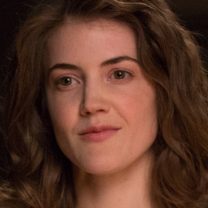 Antonia Brico/Willy by Christanne de Brujin  Frank Thompson by Benjamin Wainwright  Robin Jones by Scott Turner Schofield 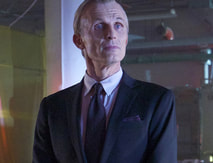 Karl Muck by Richard Sammel
0 Comments
The Guernsey Literary and Potato Peel Pie Society is a 2018 historical romantic-drama film written by Don Roos and Tom Bezucha and directed by Mike Newell. The screenplay is based on the 2008 novel of the same name, written by Mary Ann Shaffer and Annie Barrows. The film stars Lily James, Michiel Huisman, Glen Powell, Jessica Brown Findlay, Katherine Parkinson, Matthew Goode, Tom Courtenay and Penelope Wilton. Set in 1946, the plot follows a London-based writer who exchanges letters with a resident on the island of Guernsey, which had been under German occupation during World War II.
A coproduction between the United Kingdom, United States, and France, the film was distributed and financed by StudioCanal and produced by Blueprint Pictures and the Mazur/Kaplan Company. In 2010, development began on a film adaptation based on Shaffer's novel. Initially, Kate Winslet was announced as the lead, with Kenneth Branagh attached to direct. However, both dropped out in February 2013. In October 2016, James signed on for the lead role, with Newell set to direct. The film entered pre-production in January 2017, with principal photography taking place across England from 23 March to 15 May 2017: London, Cornwall, and Devon, and in the Channel Islands at St. Peter Port Harbour, Guernsey. The Guernsey Literary and Potato Peel Pie Society premiered and was theatrically released in the United Kingdom in April 2018 and in France in June 2018. The film grossed $15.7 million worldwide and received generally positive reviews from critics. It was distributed in other international areas by Netflix on 10 August 2018 as an original film.
In 1941. Two years into the Second World War, on the island of Guernsey, four friends are stopped by German soldiers for breaching curfew during German occupation. To avoid arrest, one of them, Elizabeth smartly invented an unexpected excuse: they were returning from a meeting of their book club, hastily named "The Guernsey Literary and Potato Peel Pie Society".
Five years later, in January 1946, the author Juliet Ashton is promoting her latest book, written under her pen name Izzy Bickerstaff. She has just been contracted through her publisher Sidney Stark to write stories for The Times Literary Supplement about the benefits of literature. Juliet receives a letter from Dawsey Adams, a Guernsey man who has come into possession of her copy of Charles Lamb's Essays of Elia and who wants to know where to find a bookshop in England to buy another book by the same author. He tells her that he is part of "The Guernsey Literary and Potato Peel Pie Society", which meets every Friday night. Juliet sends another book by Lamb and his sister, Tales from Shakespeare, in exchange for more information about the society and how it came into being. Juliet decides she would like to write about the society and arranges to travel to the island, despite Sidney's reservations. Her American boyfriend Mark proposes before Juliet embarks on the ferry, and she accepts. Upon arrival at Guernsey, Juliet attends a meeting of the society where she is treated as a celebrity by the members: Dawsey Adams, Amelia Maugery, Isola Pribbey, Eben Ramsey, and Eben's young grandson, Eli. Juliet is told that Elizabeth, the founding member, is overseas. Her daughter Kit is being looked after by Dawsey, and calls him "dad". Juliet asks permission to write an article about the Society, but Amelia reacts negatively to the idea. Instead of returning home as planned, Juliet remains in Guernsey to conduct research, telling the group that she is writing about the German occupation. Over the following days, she learns that Elizabeth had been arrested during the occupation and sent to Germany, but that her friends are still hoping she will return. Juliet asks Mark, who is in the armed forces, to try to locate Elizabeth. Juliet's landlady tells her that Elizabeth was no saint, hinting that she had been having sex with the occupying German forces in exchange for luxuries. Juliet asks Dawsey about the story, and he tells her: Kit's real father was Christian Hellmann, a German doctor who had worked with Elizabeth at the local hospital. Hellmann had been sent back to Germany, and died when his ship was sunk. Mark arrives in Guernsey bringing information about Elizabeth, and Juliet relays to the society the news that Elizabeth had been sent to the Ravensbrück concentration camp. There, she was shot and killed trying to protect a fellow prisoner. Juliet and Mark return to London but Juliet is unable to settle back into her previous life. She breaks up with Mark and starts to write about the society. When her manuscript is finished, she gives a copy to Sidney and posts another to the society. Dawsey reads her covering letter out loud to the group and decides to look for her, and departs for London. At the same time, Juliet arranges to return to Guernsey. She is just embarking on the ferry when she notices Dawsey on the wharf, and the two reunite. The cast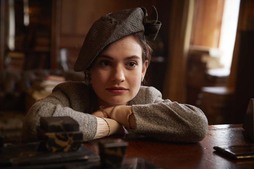
Lily James as Juliet Ashton 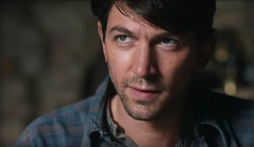
Michiel Huisman as Dawsey Adams 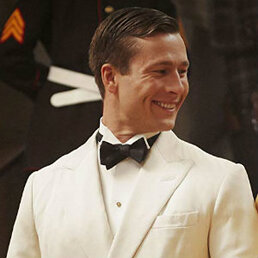
Glen Powell as Mark Reynolds 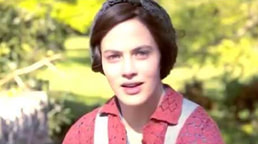
Jessica Brown Findlay as Elizabeth McKenna 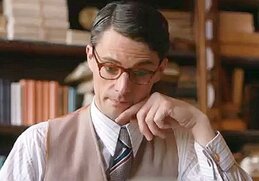
Matthew Goode as Sidney Stark 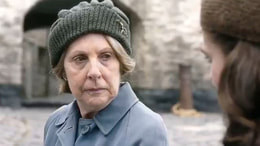
Penelope Wilton as Amelia Maugery
The main cast is like a mini reunion of Downton Abbey, reuniting some of the actors in the tv series Downton Abbey, including Lily James(as Lady Rose MacClare), Jessica Brown Findlay(Lady Sybil), Matthew Goode(Henry Talbot) and Penelpe Wilton(Isobel Crawley).
Further interest
The book
The Great Gatsby is a 1974 American romantic drama film based on F. Scott Fitzgerald's 1925 novel of the same name. It was directed by Jack Clayton and produced by David Merrick from a screenplay by Francis Ford Coppola. The film stars Robert Redford in the title role of Jay Gatsby, along with Mia Farrow, Sam Waterston, Bruce Dern, Karen Black, Scott Wilson and Lois Chiles, with Howard Da Silva (who previously appeared in the 1949 version), Roberts Blossom and Edward Herrmann. PlotWriter Nick Carraway pilots his boat across the harbor to his cousin Daisy and her husband Tom’s mansion in East Egg. While there, he learns Tom and Daisy's marriage is troubled and Tom is having an affair with a woman in New York. Nick lives in a small cottage in West Egg, next to a mysterious tycoon named Gatsby, who regularly throws extravagant parties at his home. Tom takes Nick to meet his mistress, Myrtle, who is married to George Wilson, an automotive mechanic. George needs to purchase a vehicle from Tom, but Tom is only there to draw Myrtle to his city apartment. Back on Long Island, Daisy wants to set Nick up with her friend, Jordan, a pro golfer. When Nick and Jordan attend a party at Gatsby's home, Nick is invited for a private meeting with Gatsby, who asks him to lunch the following day. At lunch, Nick meets Gatsby's business partner, a Jewish gangster and a gambler named Meyer Wolfsheim who rigged the 1919 World Series. The following day, Jordan appears at Nick's work and requests he invite Daisy to his house so that Gatsby can meet with her. Gatsby surprises Daisy at lunch, and it is revealed that Gatsby and Daisy were once lovers, though she would not marry him because he was poor. Daisy and Gatsby have an affair, which soon becomes obvious. While Tom and Daisy entertain Gatsby, Jordan, and Nick at their home, Daisy proposes they go into the city. At the Plaza Hotel, Gatsby and Daisy reveal their affair and Gatsby wants Daisy to admit she never loved Tom. She is unable to and drives off in Gatsby's car. During the drive home, Daisy hits Myrtle when Myrtle runs into the street. Believing that it was Gatsby who killed Myrtle, her husband, George, later goes to Gatsby's mansion and fatally shoots him as he relaxes in the swimming pool. Nick holds a funeral for Gatsby where he meets Gatsby's father. No one else attends the funeral. Afterward, Daisy and Tom continue with their lives as though nothing occurred. Nick breaks up with Jordan and moves back west, frustrated with eastern ways. Cast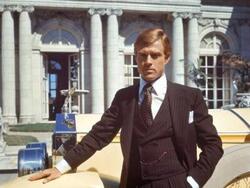 Robert Redford as Jay Gatsby 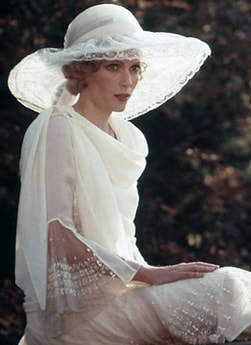 Mia Farrow as Daisy Buchanan 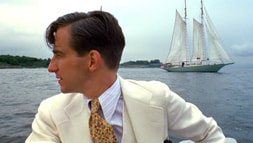 Sam Waterston as Nick Carraway Others:
ProductionTruman Capote was the original screenwriter but he was replaced by Francis Ford Coppola. Coppola had just finished directing The Godfather but was unsure of its commercial reception and he needed the money. He believes he got the job on the recommendation of Robert Redford, who had liked a rewrite Coppola did on The Way We Were. Coppola "had read Gatsby but wasn't familiar with it." He checked himself into a hotel room in Paris (Oscar Wilde's old room) and started. He later recalled: "I was shocked to find that there was almost no dialogue between Daisy and Gatsby in the book, and was terrified that I'd have to make it all up. So I did a quick review of Fitzgerald's short stories and, as many of them were similar in that they were about a poor boy and a rich girl, I helped myself to much of the authentic Fitzgerald dialogue from them. I decided that perhaps an interesting idea would be to do one of those scenes that lovers typically have, where they finally get to be together after much longing, and have a "talk all night" scene, which I'd never seen in a film. So I did that – I think a six-page scene in which Daisy and Gatsby stay up all night and talk. And I remember my wife telling me that she and the kids were in New York when The Godfather opened, and it was a big hit and there were lines around the block at five theaters in the city, which was unheard of at the time. I said, "Yeah, yeah, but I've got to finish the Gatsby script." And I sent the script in, just in time. It had taken me two or three weeks to complete." On his commentary track for the DVD release of The Godfather, Coppola refers to writing the Gatsby script, adding "Not that the director paid any attention to it. The script that I wrote did not get made." The Rosecliff and Marble House mansions in Newport, Rhode Island and an exterior of Linden Place mansion in Bristol, Rhode Island, were used for Gatsby's house while scenes at the Buchanans' home were filmed at Pinewood Studios in Buckinghamshire, England. One driving scene was shot in Windsor Great Park, UK. Other scenes were filmed in New York City and Uxbridge, Massachusetts. The film received mixed reviews, being praised for its faithful interpretation of the novel but also criticized for lacking any true emotion or feelings towards the Jazz Age. Despite this, the film was a financial success, making $26,533,200 against a $7 million budget. The film won two Academy Awards, for Best Costume Design (Theoni V. Aldredge) and Best Music (Nelson Riddle). It also won three BAFTA Awards for Best Art Direction (John Box), Best Cinematography (Douglas Slocombe), and Best Costume Design (Theoni V. Aldredge). (The male costumes were executed by Ralph Lauren, the female costumes by Barbara Matera.) It won a Golden Globe Award for Best Supporting Actress (Karen Black) and received three further nominations for Best Supporting Actor (Bruce Dern and Sam Waterston) and Most Promising Newcomer (Sam Waterston). The film was nominated by the American Film Institute for inclusion in the 2002 list of films, AFI's 100 Years...100 Passions.
The Last Tycoon is an American television series, originating from a pilot produced in 2016 as part of Amazon Studios' seventh pilot season. The show stars Matt Bomer and Kelsey Grammer and is loosely based on F. Scott Fitzgerald's last book, his unfinished and posthumously published 1941 novel The Last Tycoon. Amazon picked up the pilot to series on July 27, 2016. The first season premiered on July 28, 2017. On September 9, 2017, Amazon cancelled the series. The storyThe Last Tycoon is an unfinished novel by F. Scott Fitzgerald. In 1941, it was published posthumously under this title, as prepared by his friend Edmund Wilson, a critic and writer. According to Publishers Weekly, the novel is "generally considered a roman a clef," with its lead character, Monroe Stahr, modeled after film producer Irving Thalberg. The story follows Stahr's rise to power in Hollywood, and his conflicts with rival Pat Brady, a character based on MGM studio head Louis B. Mayer. It was adapted as a TV play in 1957 and a film in 1976 of the same name, with a screenplay for the motion picture by British dramatist Harold Pinter. Elia Kazan directed the film adaptation; Robert De Niro and Theresa Russell starred. In 1993, a new version of the novel was published under the title The Love of the Last Tycoon, edited by Matthew Bruccoli, a Fitzgerald scholar. This version was adapted for a stage production that premiered in Los Angeles, California in 1998. In 2013, HBO announced plans to produce an adaptation. HBO cancelled the project and gave the rights to Sony Pictures, which produced and released the television series on Amazon Studios in 2016. The Personnages Matt Bomer as Monroe Stahr 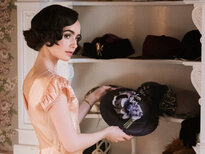 Lily Collins as Cecelia Brady 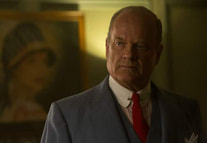 Kelsey Grammer as Pat Brady  Rosemarie DeWitt as Rose Brady 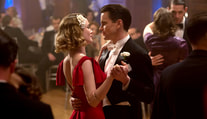 Dominique McElligott as Kathleen Moore 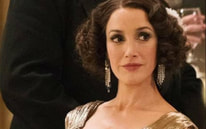 Jennifer Beals as Margot Taft Further interestArticles: 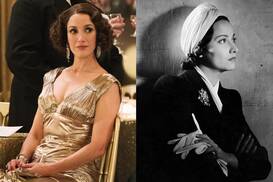 The English Patient(film, 15 November 1996) starring Ralph Fiennes and Kristin Scott Thomas15/11/2020 The English Patient is a 1996 epic romantic war drama film directed by Anthony Minghella from his own script based on the 1992 novel of the same name by Michael Ondaatje and produced by Saul Zaentz. The film tells the story of four people who find themselves in an abandoned monastery in northern Italy in the last months of World War II. The eponymous protagonist, a man burned beyond recognition who speaks with an English accent, recalls his history in a series of flashbacks, revealing to the audience his true identity and the love affair he was involved in before the war. He does not admit his identity or reveal the entire story to the nurse who cares for him and the man who suspects him until the end of the film. This form of exposition is very different from the book, where, under the influence of morphine, the patient talks about his past. The film received 12 nominations at the 69th Academy Awards, winning nine, including Best Picture, Best Director for Minghella, and Best Supporting Actress for Juliette Binoche. It was also the first to receive a Best Editing Oscar for a digitally edited film. Ralph Fiennes, playing the titular character, and Kristin Scott Thomas were Oscar-nominated for their performances. The film also won five BAFTA Awards and two Golden Globes. The British Film Institute ranked The English Patient the 55th greatest British film of the 20th century. In the final days of the Italian Campaign of World War II, Hana, a French-Canadian nurse of the Royal Canadian Army Medical Corps, gains permission from her unit to move into a bombed-out Italian monastery, to look after a dying, critically burned man who speaks English but cannot remember his name. The patient's only possession is a copy of Herodotus' Histories with notes, pictures and mementos contained inside. They are soon joined by Kip, a Sikh sapper in the British Army posted with his sergeant to clear mines and unexploded bombs in the local area, including one in the monastery where Hana and the English Patient are staying. David Caravaggio, a Canadian Intelligence Corps operative who has no thumbs as a result of torture during a German interrogation, also arrives to stay at the monastery. Caravaggio questions the patient, who gradually reveals his past to him, Hana and Kip through a series of flashbacks. The patient tells Hana and Caravaggio that in the late 1930s he was exploring a region of the Sahara Desert near the Egyptian-Libyan border. He is revealed to be Hungarian cartographer Count László de Almásy, who was mapping the Sahara as part of a Royal Geographical Society archeological and surveying expedition in Egypt and Libya with a group including his good friend, Englishman Peter Madox. Their expedition is joined by a British couple, Geoffrey and Katharine Clifton, who own a new plane and are to contribute to the aerial survey efforts. Almásy is given clues by a local Bedouin man which help the group to discover the location of the Cave of Swimmers, an ancient site of cave paintings in the Gilf Kebir. The group begin to document their find, during which time Almásy falls in love with Katharine. He writes about her in notes folded into his book, which Katharine discovers when Almásy awkwardly accepts her offer of two watercolours she has painted of the cave imagery, and asks her to paste them into the book. The two begin an affair on their return to Cairo, while the group arranges for more detailed archaeological surveys of the cave and the surrounding area. Almásy buys a silver thimble in the market as a gift to Katharine. Some months later, Katharine abruptly ends their affair from fear her husband Geoffrey will discover it. Shortly afterwards the archaeological projects are halted due to the onset of the war. Madox leaves his Tiger Moth aeroplane at Kufra Oasis before his intended return to Britain. Over the days while Almásy relates his story, Hana and Kip begin a shy love affair, but Kip is reposted once he has cleared the area of explosives. They agree they will meet again. Meanwhile, Caravaggio reveals that he has been seeking revenge for his injuries, and has killed the German interrogator who cut off his thumbs and the spy who identified him, but has been searching for the man who provided requisite maps to the Germans, allowing them to infiltrate Cairo. He suspects Almásy is that man. While Almásy is packing up the base camp at the cave site, Geoffrey, in an attempted murder-suicide having apparently long known about the affair between Almásy and Katharine, deliberately crashes his own Boeing-Stearman plane, narrowly missing Almásy. Geoffrey is killed instantly and Katharine is seriously injured. Almásy carries her to the Cave of Swimmers, realising she is wearing the thimble he gave to her on a chain around her neck. She confesses that she has always loved him despite ending their affair. After leaving her with provisions and his book, Almásy begins a three-day walk across the desert to get help. At British-held El Tag he attempts to explain the situation, but on revealing his name, is detained on suspicion of being a German spy and transported on a train. He escapes from the train, and soon afterwards comes in contact with a German army unit. They transport him to Madox's sequestered plane at Kufra Oasis, where he exchanges its stored survey maps for fuel, enabling him to fly back to the cave. However, he finds that Katharine has since died. He carries Katharine's body from the cave to the Tiger Moth and takes off. This finally connects the story to the scenes at the start of the film, where the plane is shot down by German anti-aircraft guns; Almásy is badly burned, but he is rescued by a group of Bedouin, who bring him to the Siwa Oasis, from where he is moved to Italy. After he has related his story, Caravaggio decides to spare Almásy, who indicates to Hana that he wishes to die, pushing several unopened vials of morphine towards her as she gives him his regular injection for pain relief. Though visibly upset, she grants his wishes for a compassionate death and, as he dies, she reads him Katharine's final letter, which Katharine wrote to Almásy in his book while she was alone in the cave. Hana and Caravaggio leave the monastery for Florence with a passing truck, and she hugs Almásy's book to herself as she rides away. The cast Ralph Fiennes as Almásy  Kristin Scott Thomas as Katharine Clifton 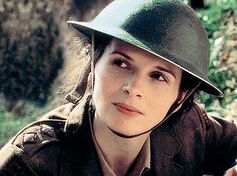 Juliette Binoche as Hana 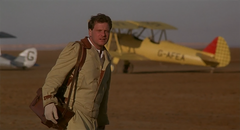 Colin Firth as Geoffrey Clifton 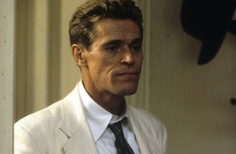 Willem Dafoe as Caravaggio The Age of Innocence(film, 1993)starring Daniel Day-Lewis, Michelle Pfeiffer, Winona Ryder1/10/2020 The Age of Innocence is a 1993 American historical romantic drama film directed by Martin Scorsese. The screenplay, an adaptation of the 1920 novel The Age of Innocence by Edith Wharton, was written by Scorsese and Jay Cocks. Scorsese's friend and screenwriter Jay Cocks gave him the Wharton novel in 1980, suggesting that this should be the romantic piece Scorsese should film, as Cocks felt it best represented his sensibility. In Scorsese on Scorsese the director noted Although the film deals with New York aristocracy and a period of New York history that has been neglected, and although it deals with code and ritual, and with love that's not unrequited but unconsummated—which pretty much covers all the themes I usually deal with—when I read the book, I didn't say, "Oh good, all those themes are here." The film stars Daniel Day-Lewis, Michelle Pfeiffer, Winona Ryder and Miriam Margolyes, and was released by Columbia Pictures. The film recounts the courtship and marriage of Newland Archer (Daniel Day-Lewis), a wealthy New York society attorney, to May Welland (Winona Ryder); Archer then encounters and legally represents Countess Olenska (Michelle Pfeiffer) prior to unexpected romantic entanglements. The Age of Innocence was released theatrically on October 1, 1993 by Columbia Pictures. It received critical acclaim, winning the Academy Award for Best Costume Design, and being nominated for Best Actress in a Supporting Role (Winona Ryder), Best Adapted Screenplay, Best Original Score and Best Art Direction. However, it was a box office failure, grossing $32.3 million against a $34 million budget. Scorsese dedicated the film to his father, Luciano Charles Scorsese, who had died the month before the film was released. Luciano and his wife, Catherine Scorsese, had small cameo appearances in the film. PlotIn 1870's New York City, gentleman lawyer Newland Archer is planning to marry the respectable young May Welland. May's cousin, the American heiress Countess Ellen Olenska, has returned to New York after a disastrous marriage to a dissolute Polish Count. At first she is ostracized by society and vicious rumors are spread, but, as May's family boldly stands by the countess, she is gradually accepted by the very finest of New York's old families. The countess is snubbed at one social party arranged by her family, but with the help of Archer, she is able to make a comeback at an event being hosted by the wealthy Van der Luydens. There she makes the acquaintance of one of New York's established financiers, Julius Beaufort, who has a reputation for risky affairs and dissipated habits. He begins to openly flirt with the countess both in public and in private. Archer prematurely announces his engagement to May, but as he comes to know the countess, he begins to appreciate her unconventional views on New York society and he becomes increasingly disillusioned with his new fiancée May and her innocence, lack of personal opinion, and sense of self. After the countess announces her intention of divorcing her husband, Archer supports her desire for freedom, but he feels compelled to act on behalf of the family and persuade the countess to remain married. When Archer realizes that he has unwittingly been falling in love with the countess, he abruptly leaves the next day to be reunited with May and her parents, who are in Florida on vacation. Archer asks May to shorten their engagement, but May becomes suspicious and asks him if his hurry to get married is prompted by the fear that he is marrying the wrong person. Archer reassures May that he is in love with her. When back in New York, Archer calls on the countess and admits that he is in love with her, but a telegram arrives from May announcing that her parents have pushed forward the wedding date. After their wedding and honeymoon, Archer and May settle down to married life in New York. Over time, Archer's memory of the countess fades. When the countess returns to New York to care for her grandmother, she and Archer agree to consummate their affair. But then suddenly, the countess announces her intention to return to Europe. May throws a farewell party for the countess, and after the guests leave, May announces to Archer that she is pregnant and that she told the Countess this news two weeks earlier. The years pass: Archer is 57 and has been a dutiful, loving father and faithful husband. The Archers have had three children. May has died of infectious pneumonia and Archer mourned her in earnest. Archer's engaged son, Ted, persuades him to travel to Paris. Ted has arranged for them to visit Countess Olenska there. Archer has not seen the her in over 25 years. Ted confides to his father that May had confessed on her deathbed that "... she knew we were safe with you, and always would be. Because once, when she asked you to, you gave up the thing you wanted most." Archer responds, "She never asked me." That evening outside the countess' apartment, Archer sends his son alone to visit her. Sitting outside in the courtyard, he recollects their time together and slowly walks off. ProductionThe Age of Innocence was filmed on location primarily in Troy, New York. The opera scenes were filmed at the Philadelphia Academy of Music in Philadelphia, Pennsylvania. The scenes set in the home of Mrs. Mingott were filmed in "The Castle", a fraternity house belonging to the Alpha Tau chapter of Pi Kappa Phi at Rensselaer Polytechnic Institute. Formerly known as the Paine Mansion, after its completion in 1896 (then-estimated to cost $500,000), it was heralded as the grandest house in all of Troy. The scenes depicting the country house in snow were filmed inside the circa 1737 Dutch-colonial Luykas Van Alen House, in Kinderhook, New York. Only one major set was built, for an ornate ballroom sequence at the Beaufort residence. The triangular Victorian Gothic Rice Building was used as the setting for the law office. The film's title sequence was created by Elaine and Saul Bass. The famous paintings featured in the film were newly created high-quality reproductions. The bursts of color employed as a fade out were inspired by the films Black Narcissus (1947), by Michael Powell, and Rear Window (1954), by Alfred Hitchcock. The film grossed $32.3 million in the US from a $34 million budget. By the end of 1993 it had grossed $15 million internationally. Cast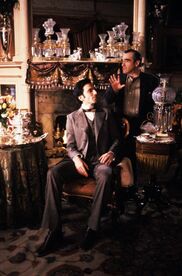
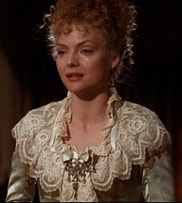
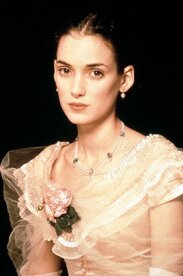
The V.I.P.s(film, 13 September 1963) starring Elizabeth Taylor, Richard Burton and Louis Jourdan13/9/2020 The V.I.P.s (also known as Hotel International) is a 1963 British drama film in Metrocolor and Panavision. It was was written by Terence Rattigan, who said the film is based on the true story of actress Vivien Leigh's attempt to leave her husband, actor Laurence Olivier, and fly off with her lover, the actor Peter Finch, only to be delayed by a fog at Heathrow. The film has an all-star cast, including Richard Burton, Elizabeth Taylor, Louis Jourdan, Elsa Martinelli, Maggie Smith, Rod Taylor, Orson Welles and Margaret Rutherford, who won the Academy Award for Best Supporting Actress as well as the Golden Globe Award for Best Supporting Actress – Motion Picture. The director of the film Anthony Asquith intended for Sophia Loren to play Elizabeth Taylor's role, remembering the box-office success of The Millionairess (1960) he did with Loren in the main role. However, Taylor, scared by the appeal Loren had for Burton, persuaded Asquith to hire her instead; "Let Sophia stay in Rome", she told him. The film was produced by Anatole de Grunwald. It was shot entirely at MGM-British Studios, Borehamwood, Herts., with a few establishing shots filmed at what was then known as London Airport, later Heathrow. The terminal set was one of the largest ever constructed in the UK. The music score was by Miklós Rózsa. Critical reaction to the film was mixed. It nevertheless did extremely well at the box office, helped by the enormous publicity attached to Burton and Taylor's Cleopatra, which was out on release. Distributed by Metro-Goldwyn-Mayer, the film grossed $15,000,000 domestically, earning $7.5 million in U.S. theatrical rentals on a budget of $4 million. In addition to its North American success, it was one of the 12 most popular films in Britain in 1963. It had admissions of 765,804 in France. Slightly in advance of the film's release, as was the custom of the era, a paperback novelization of the screenplay was published by Dell Books. The author was renowned crime and western novelist Marvin H. Albert, who also made something of a cottage industry out of movie tie-ins. He seems to have been the most prolific screenplay novelizer of the late '50s through mid '60s, and, during that time, the preeminent specialist at light comedy, though he adapted a few drama scripts as well. The V.I.P.s is what's known as an "inferred novelization" because, although screenwriter Terence Rattigan is not given attribution anywhere on or in the book, the copyright is assigned to Metro-Goldwyn-Mayer. Whether this omission was an editorial error, or a marketing ploy to make Albert's novel seem to be the film's source material (with or without the complicity of Rattigan) is unknown. The film is set within Terminal 3 of London Heathrow Airport during a fog. As flights are delayed, the VIPs (very important people) of the title play out the drama of their lives in a number of slightly interconnected stories. The delays have caused serious hardship for most of the characters and have plunged some of them into a deep personal or financial crisis. The central story concerns famed actress Frances Andros (Elizabeth Taylor) trying to leave her husband, millionaire Paul Andros (Richard Burton), and fly away with her suitor Marc Champselle (Louis Jourdan). Because of the fog, Andros has the opportunity to come to the airport to persuade his wife not to leave him. The Duchess of Brighton (Margaret Rutherford) is on her way to Florida to take a job, which will pay her enough money to save her historic home. Meanwhile, film producer Max Buda (Orson Welles) needs to leave London, taking his newest protégée Gloria Gritti (Elsa Martinelli) with him, by midnight if he is to avoid paying a hefty tax bill. Les Mangrum (Rod Taylor), an Australian businessman, must get to New York City to prevent his business from being sold. His dutiful secretary, Miss Mead (Maggie Smith), is secretly in love with him. It being a matter of great urgency, she decides to approach Paul Andros and ask him to advance a sum of money that will save Mangrum's company. Buda spots a poster picturing the Duchess's home. She is offered a sum of money if she will permit Buda to use it as a location in a film, enough to keep the house she loves. Andros, meanwhile, about to lose the woman he loves, is spared a possible suicide at the last minute when he and his wife reconcile. The cast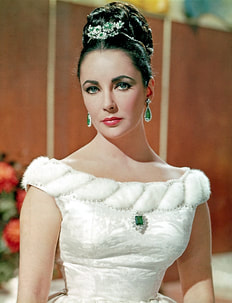 Elizabeth Taylor as Frances Andros 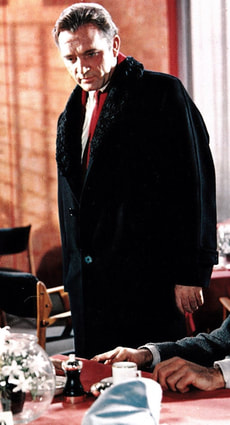 Richard Burton as Paul Andros 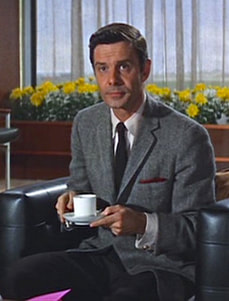 Louis Jourdan as Marc Champselle 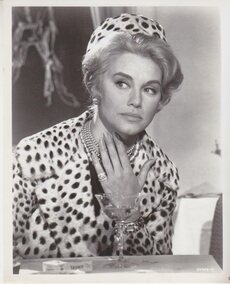 The Duchess is a 2008 British drama film directed by Saul Dibb. It is based on Amanda Foreman's biography of the late 18th-century English aristocrat Georgiana Cavendish, Duchess of Devonshire. It starred Keira Knightley, Ralph Fiennes and Hayley Atwell, and was released in September 2008 in the United Kingdom. The film won the Academy Award for Best Costume Design, and was nominated for Best Art Direction. The young Georgiana is contracted in marriage to William Cavendish, Duke of Devonshire, with the expectation that she produces his male heir. Georgiana is quickly disillusioned by her husband, especially when Charlotte, a motherless child, comes to live with them while Georgiana is pregnant. William expects Georgiana to tolerate the child's presence, who turns out to be his own illegitimate offspring. He also suggests that she "practise mothering" on the young girl. When Georgiana gives birth to a girl, William is displeased. In his mind, he has fulfilled his obligations to her as her husband but, by failing to provide him with a legitimate male heir, she has failed in her obligations as his wife. Georgiana socialises with the young Lady Bess Foster at Bath and kindly invites her to live with them since Bess has nowhere else to go. William has an affair with Bess, causing Georgiana to feel robbed of her only friend and betrayed by Bess. Bess explains to Georgiana that her motive is to regain her three sons (whom her husband has taken from her), so she continues to live with them. Georgiana starts an affair with Charles Grey. William is outraged when Georgiana suggests that since he has Bess, she should be allowed Charles as a distraction. William rapes Georgiana; a male child is the product. Bess encourages the affair between Georgiana and Charles after the birth of Georgiana's son. Soon, the whole of London society comes to know of Georgiana's affair. William threatens to end Charles's political career and forbid Georgiana from seeing her children again if she does not end the relationship. After initially resisting, Georgiana ends her relationship with Grey but tells William that she is pregnant with Charles' child. She is sent to the countryside where she secretly gives birth to her daughter with Grey, Eliza Courtney, who is given to the Grey family to raise as Charles' niece. Georgiana finds comfort in Bess's friendship during her time of giving birth to Eliza. Georgiana and William come to terms with one another and, along with Bess, continue their lives together. The after-credits reveal Georgiana secretly visits her daughter Eliza. Eliza goes on to name her own daughter Georgiana, after her mother. Charles later becomes Prime Minister of the United Kingdom under William IV. Before she dies, Georgiana permits William and Bess to marry. The Duchess was produced by British Qwerty Films and American Magnolia Mae Films, with financial support from BBC Films, French Pathé and Italian BIM Distribuzione. The film was shot at Twickenham Film Studios and on location at Chatsworth, Bath, Holkham Hall, Clandon Park, Kedleston Hall, Somerset House, King's College London and the Old Royal Naval College in Greenwich. Studio executives wanted to use digitally altered images of Keira Knightley in promotional materials. The alterations were specifically aimed at enlarging her breasts. Knightley objected to the alterations, and they were not used. Although multiple media reports suggested that the use of parallels between the central character's life and that of Diana, Princess of Wales was being used as a marketing strategy for the project, Knightley denied any such connection. The film had its world premiere on 3 September 2008, in Leicester Square and was released nationwide in the United Kingdom on 5 September. The cast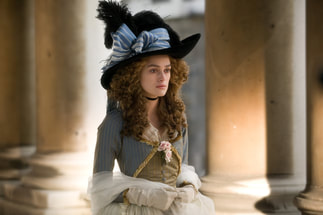 Keira Knightley as Georgiana Cavendish, Duchess of Devonshire 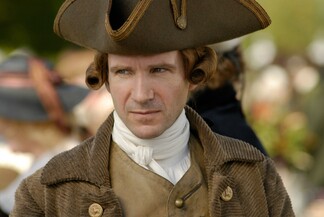 Ralph Fiennes as William Cavendish, 5th Duke of Devonshire 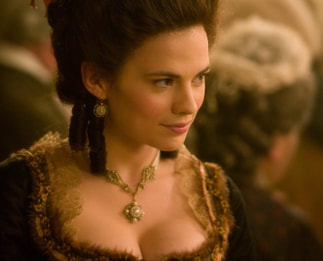 Hayley Atwell as Lady Elizabeth 'Bess' Foster The Luzhin Defence is a 2000 romantic drama film directed by Marleen Gorris, starring John Turturro and Emily Watson. The film centres on a mentally tormented chess grandmaster and the young woman he meets while competing at a world-class tournament in Italy. The screenplay was written by Peter Berry, based on the novel The Defense (or The Luzhin Defence) by Vladimir Nabokov. Nabokov based The Defense on the life of German chess master Curt von Bardeleben who seemingly committed suicide by leaping from a window in 1924. Emily Watson received best actress nominations at the British Independent Film Awards and the London Film Critics Circle Awards. It's the early 1920s and Aleksandr Ivanovich 'Sascha' Luzhin (John Turturro), a gifted but tormented chess player, arrives in a Northern Italian city to compete in an international chess competition. Prior to the tournament he meets Natalia Katkov (Emily Watson) and he falls in love with her almost immediately. She in turn finds his manner to be appealing and they begin to see each other in spite of her mother Vera's disapproval. The competition starts badly for Luzhin who is unsettled by the presence of Leo Valentinov (Stuart Wilson), a Russian, who is Luzhin's former chess tutor from pre-revolutionary Russia. Valentinov even approach Dottore Salvatore Turati (Fabio Sartor), Luzhin's main rival, telling the Italian Luzhin's defect while competing to ensure the loss his former prodigy. Luzhin struggles through the early rounds but he soon begins to win again as his relationship with Natalia becomes closer and intimate. She then informs her parents that she is going to marry him. Meanwhile, Luzhin goes on to reach the final and face Turati. In the finals the Russian Émigré loses out to the time clock, forcing the game to adjourn. However, outside the venue, he is whisked away by an accomplice of Valentinov who abandons him in the countryside. His former teacher knows that this will completely unhinge him because of the memory of his parents' abandonment many years ago. Luzhin wanders aimlessly until he collapses and is found by a group of Blackshirts and taken to the hospital. The doctor informs Natalia that Luzhin will die if he keeps playing chess as he is addicted to the game and it's consuming his very being. Nevertheless, even while recuperating Valentinov comes around with a chess board encouraging Luzhin to finish the match with the Italian Turati. Natalia defends her beloved but urges him to break off with the game. Luzhin seems to agree. Luzhin leaves the hospital with Natalia and they proceed to marry at the earliest opportunity. However, on the morning of the wedding, Luzhin is put into a car with Valentinov, who tells him that there is the small matter of finishing the competition. In terror, Luzhin leaps from the car. Dazed, cut and mentally confused, he stumbles back to the hotel where he tries to dig up the rest of the glass chess pieces he buried on the grounds years ago, but he does not find them. He went back to his hotel room and locked himself in his muddied wedding suit. Natalia, in wedding dress, worried and went back to the hotel to find him. But before she can get the hotel staff to open the door, the troubled chess grandmaster jumps out of his bedroom window and dies. While arranging Luzhin's staff, Natalia discovers the papers in his wedding suit pocket, with the help of the Count(Christooher Thompson), an experienced chess player himself, Natalia realizes it was Luchin's winning moves for his unfinished game. Natalia decides to play against Turati using her fiancé's notes. She wins. The film was shot entirely in Europe. Budapest, Hungary was used for outdoor scenes as they were set in St Petersburg, these included the Széchenyi Chain Bridge, Hungarian National Museum and Heroes' Square. The chess tournament (although in Italy) was shot inside the main hall of the Museum of Ethnography, Budapest. In Italy, the hotel scenes were filmed at Villa Erba, Cernobbio, on the Lake Como. The scene at the railway station is in Brenna-Alzate, near Como. In the novel, Valentinov's first name is never mentioned; on the contrary, Luzhin's first name is revealed only in the closing sentences. Another dissimilarity is that the novel ends up by Luzhin's suicide, thereby his game would be never finished. The cast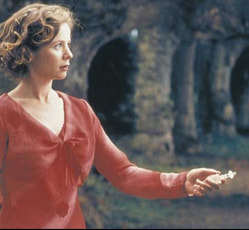 Emily Watson
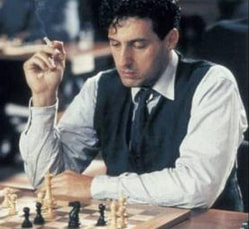 John Turturro
To Catch a Thief is a 1955 American romantic thriller film directed by Alfred Hitchcock, from a screenplay by John Michael Hayes based on the 1952 novel of the same name by David Dodge. The film stars Cary Grant as a retired cat burglar who has to save his reformed reputation by catching an impostor preying on the wealthy tourists of the French Riviera. Grace Kelly stars opposite him as his romantic interest in her final film with Hitchcock. Retired jewel thief John "The Cat" Robie is suspected by the police in a string of burglaries on the French Riviera. When they come to his hilltop villa to question him, he slips their grasp and heads to a restaurant owned by his friend Bertani. When the police arrive at the restaurant looking for Robie, Danielle Foussard, the teenage daughter of a staff working in the restaurant Foussard, who has a crush on him, spirits him to safety. Robie realizes he can prove his innocence by catching the new Cat in the act. He enlists the aid of an insurance man, H. H. Hughson, who reluctantly discloses a list of the most expensive jewelry owners currently on the Riviera. American tourists Jessie Stevens, a wealthy nouveau riche widow, and her daughter Frances, top the list. Robie strikes up a friendship with them. Frances feigns modesty at first, but kisses Robie at the end of the night before retiring to her room. The day after, Frances invites Robie to a swim at the beach, where Robie runs into Danielle, who is jealous about his interest in Frances. When Frances accompanies Robie on a "picnic" to a villa, she reveals that she knows Robie's real identity. He initially denies it, but concedes it that evening when she has invited him to her room to watch a fireworks display. There they kiss passionately. The next morning, Frances's mother Jessie discovers her jewels are gone. Frances accuses Robie of using her as a distraction so he could steal her mother's jewelry. The police are called, but by the time they reach Jessie's room, Robie has disappeared. Later, Robie is staking out an estate at night when he is attacked by an unknown assailant. A second attacker raises a wrench and appears to hit Robie, who falls off the estate's seawall into the water. But when the police reach the body in the water, it turns out to be Foussard, one of the staff at Bertani's restaurant. The police chief publicly announces that Foussard was the jewel thief, but, as Robie points out privately in the abashed Hughson's presence, this would have been impossible because Foussard had a wooden leg, and could not climb on rooftops. Foussard's funeral is interrupted by Danielle's loud accusation that Robie is responsible for her father's death. Outside the graveyard, Frances apologizes to Robie and confesses her love. Robie asks Frances to arrange his attendance at a fancy masquerade ball, where he believes the Cat will strike again. Robie accompanies Frances to the ball dressed as a masked Moor. The police hover nearby. Upstairs, the cat burglar silently cleans out several jewel boxes. When Jessie addresses the Moor as "John" and asks him to go and get her "heart pills", the authorities are tipped off as to his identity. Upon the masked Moor's return, the police wait as he and Frances dance together all night. When the masked Moor and Frances go to her room, the mask is removed: it was Hughson, who switched places with Robie to conceal Robie's exit. Robie lurks on the rooftop, and his patience is finally rewarded when he spots a figure in black. However, just as his pursuit begins, the police throw a spotlight on him and demand he halt. He flees as they shoot at him, but he nonetheless manages to corner his foe with jewels in hand. Unmasked, his nemesis turns out to be Danielle. She loses her footing on the roof, but Robie grabs her hand before she can fall. While she hangs in his grasp, he forces her to confess to the police and admit that Bertani was the ringleader of this gang. Robie speeds back to his villa. Frances follows to convince him that she has a place in his life. He agrees but looks less than thrilled when she says, "Mother will love it up here." 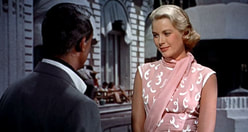
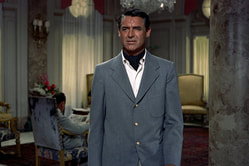
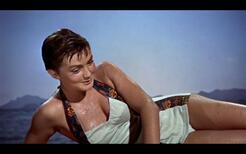
Year: 2017 Writer: Ramón Campos, Teresa Fernández-Valdés, Gema R. Neira Director: Manuel Gómez Pereira, David Pinillos, Eduardo Chapero-Jackson Music: Federico Jusid Costume design: Helena Sanchís Stars: Amaia Salamanca/Álex García/Anna Moliner/Cristóbal Suárez/ José Sacristán/Silvia Alonso Country: Spain Language: Spanish Historia/SinopsisTiempos de guerra es una serie de televisión española creada por Ramón Campos, Teresa Fernández-Valdés y Gema R. Neira y producida por Bambú Producciones. La serie fue rodada por la cadena Antena 3, dentro de las instalaciones de Atresmedia en San Sebastián de los Reyes (Comunidad de Madrid). Julio de 1921. El gobierno español lucha por mantener sus posesiones en el norte de África, en la zona del Rif, donde se enfrenta a grupos autóctonos (rifeños) que se resisten a ser dominados por el Protectorado español de Marruecos. El avance de los sublevados rifeños liderados por Abd el-Krim parece imparable, infligiendo al Ejército Español una dura derrota en la decisiva plaza de Annual. Oficiales y tropas huyen despavoridos en confuso tropel a través de los desfiladeros mientras son acribillados desde las alturas por los rifeños. Las bajas entre el ejército español se cuentan por miles. En los hospitales de Melilla, médicos y enfermeras se entregan a un único objetivo: salvar la vida de los soldados heridos en el frente. Por orden de la Reina Victoria Eugenia, la Cruz Roja Española envió a un grupo de enfermeras comandadas por la Duquesa de la Victoria, con el fin de instalar hospitales de sangre en todas las zonas del conflicto. En el fragor de la batalla, son solo los sentimientos los que siguen dando fuerza y valor a los soldados españoles: la esperanza, el amor... Enfermeras y soldados, hombres y mujeres a ambos lados de la línea del fuego, testigos directos del transcurso de la guerra. Story/SynopsisMorocco: Love in Times of War (original Spanish title: Tiempos de guerra) is a war drama set primarily in 1920s Melilla, a Spanish city located in North Africa. Occurring during the Rif War, the series revolves around a group of nurses from Madrid, Spain who are sent to Morocco by Queen Victoria Eugenia to open a hospital in the war torn region of North Africa. The nurses learn firsthand the cruelty of war, but still find time for romance. In 1921, Morocco is being ravaged by the events of the Rif War. The Riffian resistance in the country has killed many soldiers of the Spanish Army. To remedy this, Queen Victoria Eugenie agrees to send a group of nurses from the Spanish Red Cross to Melilla in order to establish a hospital. This group of nurses is led by the Duchess of Victoria, María del Carmen Angoloti y Mesa, and is made up of members of Spain's upper class. The group arrives in Melilla, and set up a hospital in an old school. It is not long before they are put into action. Despite all the injuries and casualties, these nurses have not lost hope and still find time to seek romance from the soldiers and doctors that they are surrounded by. Eventually it is agreed upon that more lives can be saved out on the front lines before injured soldiers are even brought into the hospital. None of these nurses are combat trained, but some of them will now have to figure out how to stay alive on the front lines. Personajes/Personages Julia Ballester by Amaia Salamanca 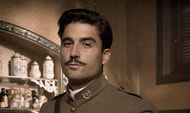 Fidel Calderón by Álex García 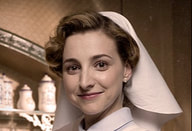 Magdalena Medina by Anna Moliner  Pilar Muñiz de Solaruce by Verónica Sánchez 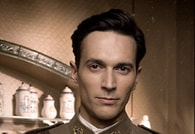 Luis Garcés by Cristóbal Suárez  Carmen Angoloti by Alicia Borrachero 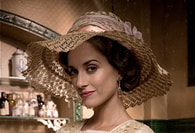 Susana Márquez by Silvia Alonso 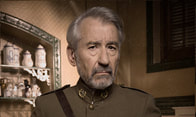 V. Ruíz-Márquez by José Sacristán 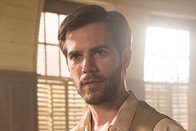 Alejandro Prada by Marc Clotet  Larbi Al Hamza by Daniel Lundh Vestuario/Costume Design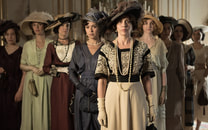 Helena Sanchís Watch the serie onlineOption 1: Atresmedia streaming Option 2: Netflix
The Scarlet Pimpernel is a 1982 British romantic adventure television film set during the French Revolution. It is based on the novels The Scarlet Pimpernel and Eldorado by Baroness Emmuska Orczy, and stars Anthony Andrews as Sir Percy Blakeney/the Scarlet Pimpernel, the protagonist, Jane Seymour as Marguerite St. Just, the love interest, and Ian McKellen as Chauvelin, the antagonist. In 1792 during the Reign of Terror, the Scarlet Pimpernel rescues French aristocrats while posing as the wealthy but foppish and seemingly empty-headed Sir Percival Blakeney. Percy marries the beautiful French actress Marguerite St. Just, but her previous relationship with Robespierre's agent Armand Chauvelin may endanger the Pimpernel's plans to save the young Dauphin, eldest son of the former King of France. The story differs from the book but is largely inspired by it. Plot: In 1792 during the Reign of Terror of the French Revolution, a secret league of brave Englishmen are rescuing French aristocrats from the guillotine. The leader of this secret society is a mysterious English nobleman known only as the Scarlet Pimpernel, whose signature sign is a humble wayside flower. In society he hides his identity by posing as the wealthy but foppish and seemingly empty-headed Sir Percy Blakeney. After rescuing the Count de Beaulieu and his family, Percy is introduced to the beautiful French actress Marguerite St. Just through her brother, Armand, whom he rescued from an attack. Percy is attracted to Marguerite, but she is in a relationship with Armand Chauvelin, an agent of Maximilien Robespierre. Due to the Scarlet Pimpernel's past successes, Chauvelin is assigned to discover his identity and capture him. After Percy and his associates smuggle another aristocrat out of the city while picnicking with Marguerite, Chauvelin deduces that the Scarlet Pimpernel must be an English nobleman, and tries to coerce the Count de Tournay to spy on the English court for the Republic. Later, Marguerite and Chauvelin have an argument over the executions and he angrily departs. Percy reveals his identity to Armand and convinces him to use his connections to Chauvelin to investigate the French prison holding the Dauphin, son of the former King of France. Soon after, the Scarlet Pimpernel and his associates rescue de Tournay's family. Following a passionate courtship, Percy marries Marguerite, but soon their happiness is interrupted when he discovers that she apparently signed the arrest warrant of the Marquis de St. Cyr and his family, the man responsible for the previous attack on Armand. This leads to beheadings of the entire St. Cyr family. Believing that she was seeking revenge and is still in league with Chauvelin, Percy becomes distrustful of his new wife. Unaware of her husband's knowledge of her extorted role in the deaths of the St. Cyr family, Marguerite unhappily notices his growing disdain for her and for married life. Armand advises Percy to tell Marguerite about his suspicions so that she may defend herself, but Percy refuses, even though he admits he will love her until the day he dies. Soon after, Chauvelin discovers that Armand is in league with the Scarlet Pimpernel, and summons him back to Paris. Blackmailing Marguerite by threatening her brother's life, Chauvelin coerces her into discovering the vigilante's identity. After finding that the Scarlet Pimpernel is to rendezvous at midnight, Marguerite tells Chauvelin. However, she immediately warns the Scarlet Pimpernel—actually her husband, unbeknownst to her—and adds that Chauvelin betrayed her trust and faked her signature. Percy's faith in his wife is restored. Having been thwarted from encountering them, Chauvelin angrily leaves for Paris. Percy and his associates also depart for France to save Armand and the Dauphin. Marguerite notices that Percy's family crest bears a scarlet pimpernel, and quickly deduces his identity. After Armand arranges the firing of the gaolers in charge of the Dauphin's care, Percy and his associates use the removal of their belongings to smuggle the Dauphin out of the city. The boy is taken to a castle on the French coast, but Percy is soon captured while trying to save Armand. Marguerite visits her husband in prison, where he tells her to arrange for the Baron de Batz—an Austrian interested in saving the Dauphin—to smuggle the boy out of France the following night. Later, Percy agrees to personally bring Chauvelin to the Dauphin. Chauvelin and Percy, along with Marguerite and Armand who are hostages, arrive at the castle, but the Dauphin has already been removed. Angered by the deception, Chauvelin orders Percy's execution, but the firing squad consists of members of the league of the Scarlet Pimpernel, disguised as Chauvelin's troops. Percy is rescued and returns to duel with Chauvelin, and is victorious. Percy decides to leave Chauvelin's fate to Robespierre. Impersonating Chauvelin to ensure their escape, Armand departs from the castle along with the French troops that Chauvelin had stationed there. Percy and Marguerite sail away, happily in love. Cast:
Production: The Scarlet Pimpernel is based on a novel written by Baroness Emma Orczy. The 1982 adaptation was produced by London Films and directed by Clive Donner. Filming took place at various eighteenth century sites in England, including Blenheim Palace, Ragley Hall, Broughton Castle, and Milton Manor; also Lindisfarne. Tony Curtis served as the film's designer. The film was expanded to three hours to allow time for the addition of a subplot and extra characters. The subplot, taken from another of Orczy's novels, detailed the successful rescue of the Dauphin from a French prison.
Anthony Andrews had recently won the BAFTA for Best Actor for his performance in the 1981 serial Brideshead Revisited, and was cast as Sir Percy Blakeney/Scarlet Pimpernel. In addition to that serial, Andrews was also known to American audiences through the PBS ITV& BBC shows Danger UXB and The Duchess of Duke Street as well as several other productions. London Films hoped that this popularity would lead to Andrews starring in a Scarlet Pimpernel series in the US, but this never occurred.Other cast members included Ian McKellen and Jane Seymour. The recipient of a Golden Globe nomination for East of Eden, Seymour was cast as Marguerite St. Just. She later played Marie Antoinette in the 1989 film La Révolution française. |
Categories
All
Archives
October 2023
|
